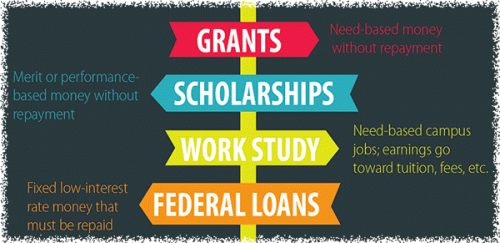A grant is given by the federal government, the state or the university as a gift; you don't need to repay a grant or work to earn the money. The federal grants listed are the most common, but there are others you may be eligible for.
- Federal Pell Grants- Amounts change yearly. The maximum Federal Pell Grant award is $6,495 for the 2021-2022 award year.
- Federal Supplemental Education Opportunity Grant (FSEOG)-The FSEOG program is administered directly by the financial aid office at each participating school. Not all schools participate. Check with your school's financial aid office to find out if the school offers the FSEOG. You can receive between $100-$4,000 a year, depending on your financial need, when you apply, the amount of other aid you get, and the availability of funds at your school.
- The Teach Grant- Different from other federal student grants because it requires you to agree to complete a teaching services obligation as a condition for receiving the grant, and if you don't complete the service obligation, the TEACH Grant will be converted to a loan that you must repay, with interest. The TEACH Grant Program provides grants of up to $4,000 a year to students who are completing or plan to complete course work needed to begin a career in teaching.


